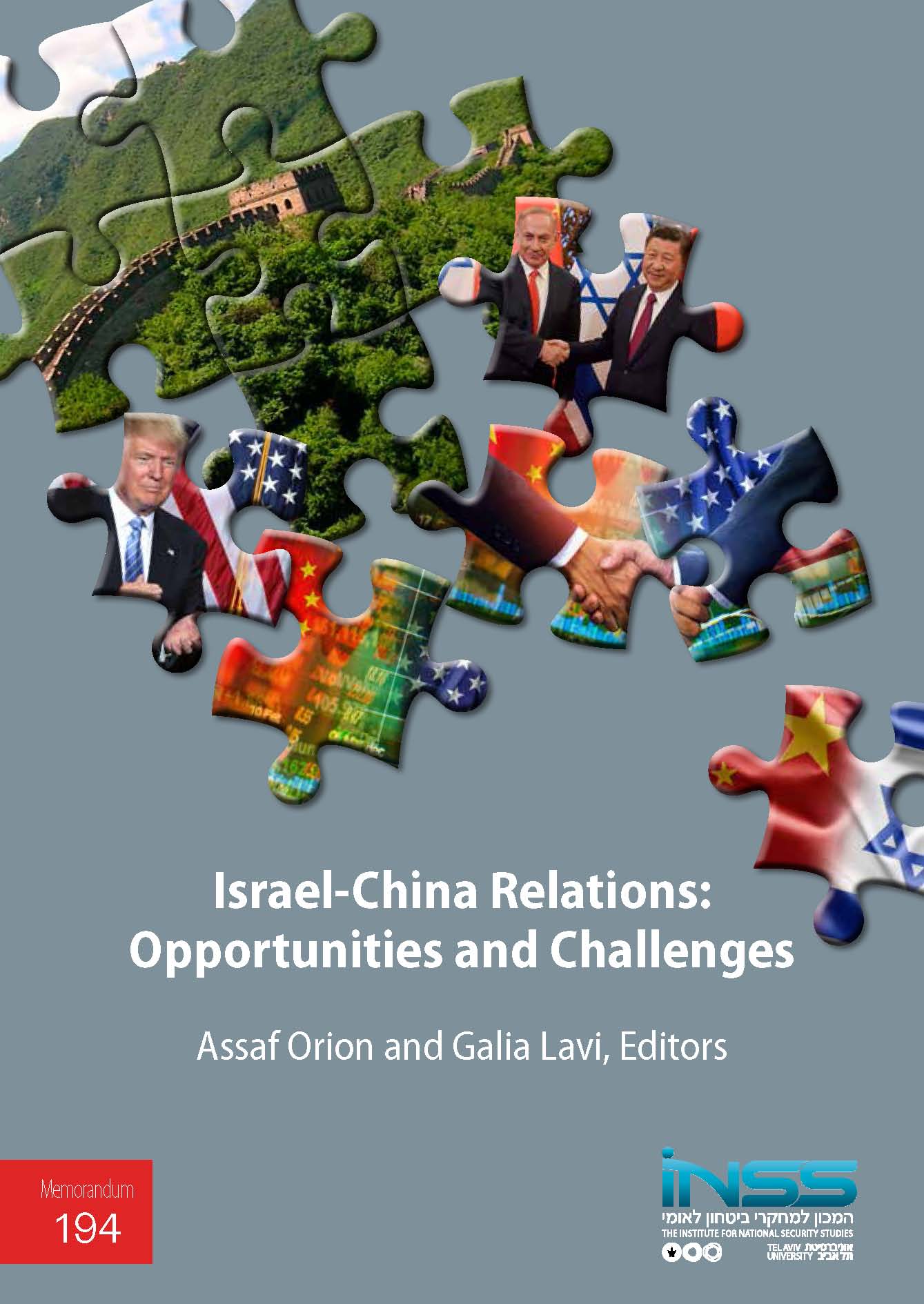Publications
Memorandum No. 194, INSS, August 2019

Since the 1990s, there has been a significant improvement in Israel’s international relations, especially on the economic level. The collapse of the Communist bloc, the establishment of relations with India and China, and the upgraded relations with the European Union have enabled Israel to enter new markets, while leveraging its innovation capabilities in a variety of fields, from development and production of weapon systems to desalination, water recycling, and irrigation technologies. The international arena, which until the fall of the Soviet regime in Russia was characterized by bipolar blocs, and then, for the next two decades, saw the undisputed dominance of the United States, has changed drastically. United States technological-military dominance remains, but deep culturalpolitical changes, especially in the West – such as the need for the political leadership to explain the use of military force to its voters, public opposition to military operations that are difficult to explain in terms of “defending the homeland,” and harsh criticism of the “disproportionate” use of military force – narrow the gap created by technological dominance.
Along with the development of processes that lowered United States ability or desire to express its technological-military superiority, economic superpowers have arisen such as the European Union and China; in the not-too-distant future they will perhaps be joined by India and others. In addition to the traditional international economic bodies such as the World Bank and the International Monetary Fund, since World War II dominated by the United States, new organizations based on geography or economic power have been created, in which the United States is not a member or its membership does not provide it with superiority. The ability of a country to join such organizations is an important component of its economic and even political power (for example, regional banks or the G20). For these reasons the political-military-economic strategic realm in which Israel maneuvered in 1990 has changed dramatically, and the map of economic-political interests in 2019 has transformed considerably. Israel’s political and military anchor 30 years ago was the United States and it remains so today, while Europe remains Israel’s main trade partner, followed by the United States. But this picture is overly simplistic, as it does not portray the rise of Asia in Israel’s trade relations (both civilian and military) and the potential rise of industries such as innovation in various fields or energy.


